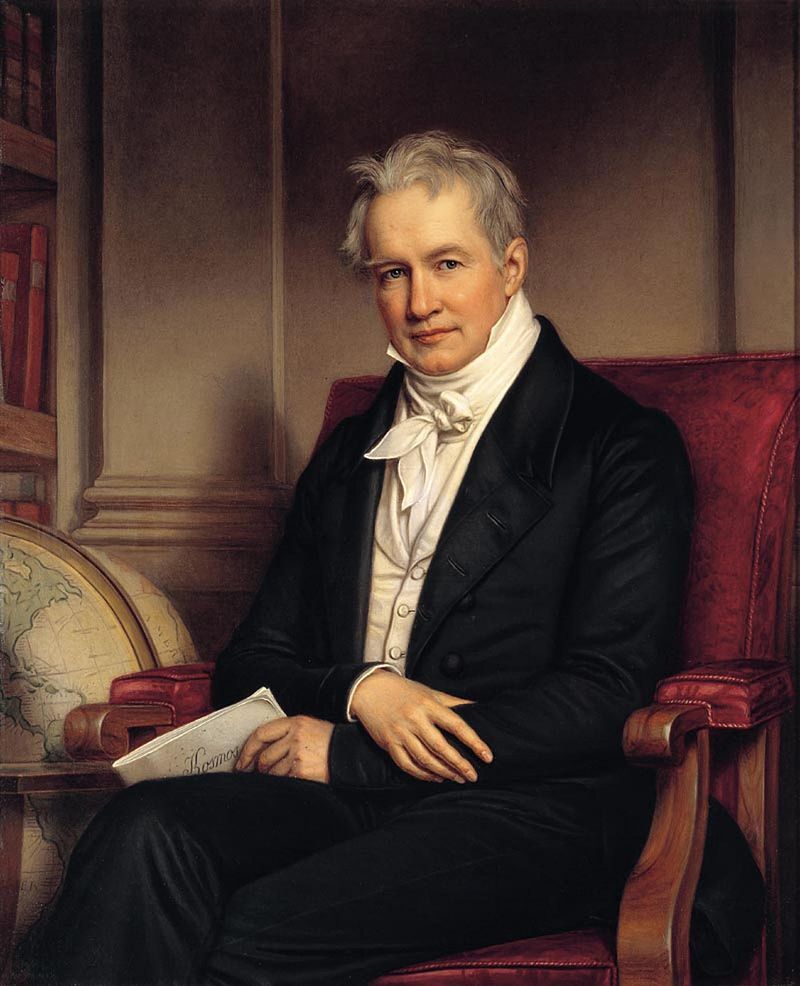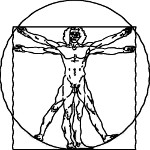



|
Alexander von Humboldt |
|
Friedrich Wilhelm Heinrich Alexander von Humboldt (1769–1859) was a Prussian geographer, naturalist, explorer, and influential proponent of philosophy and science. Humboldt's quantitative work on botanical geography laid the foundation for the field of biogeography. His advocacy of long-term systematic geophysical measurement laid the foundation for modern geomagnetic and meteorological monitoring. Humboldt travelled extensively in Latin America, exploring and describing it for the first time from a modern scientific point of view. He was one of the first people to propose that the lands bordering the Atlantic Ocean were once joined, South America and Africa in particular. Humboldt resurrected the use of the word cosmos from the ancient Greek and assigned it to his multi-volume treatise, Kosmos, in which he sought to unify diverse branches of scientific knowledge and culture. This important work also motivated a holistic perception of the universe as one interacting entity. Humboldt never married. His life was marked by a pattern of intense male friendships, which sometimes tipped over into romantic passion.
ASPECT
POINTS
Science
4
Law
0
Medicine 0 Business
2
Philosophy
1
Art
0
Travel
2
Sports
2
Beauty
*
Family
0
Fame
1
Civic 0 Career
1
Wealth
0
Leader
0
Humanity
0
TOTAL 13
Humanist
|